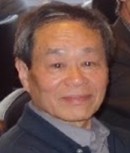
Plenary Lecture
Control Functions and Bipolar Potentials in Excitatory Cells – Characteristics of Neuron and Unicellular Organism

Professor Atsushi Fukasawa
Institute of Statistical Mathematics
Japan
E-mail: takizawa@ism.ac.jp
Abstract: Secretary, muscle, and neural cells in multicellular organism induce excitations for stimulations. Upon reception of external or internal stimulation, potential pulses are induced in excitatory cells when reception potential exceeds threshold. Unicellular organisms are the other type of excitatory cells.
He will present first how unicellular organisms control cilia of paramecium and tentacles of noctiluca. Forward or backward movements by cilia of paramecium, and expansion or contraction of food gathering tentacles of noctiluca are controlled by positive and negative potentials generated in a single cell.
Recently not only positive potential (pulse and plateau) but also negative potential plateau are reported in studies in neural systems. Common basis of activity in neurons will be presented on dual configuration with Na+ and Cl- as the dominant charges (ions) for bipolar action potentials.
Brief Biography of the Speaker: Atsushi Fukasawa received the Master of Arts degree and Ph.D. degree from Waseda University in 1967 and 1983. He was a professor in Graduate School of Natural Science, Chiba University in 1997. He received the Award of the Agency of Science and Technology, Japan in 1982, and Ohm (publisher) Prize in 1994. He received Telecommunication System Technology Prize from the Foundation of Telecommunication Association, Japan in 2004. He is a senior member of the IEEE.
Dr. A. Fukasawa and his colleague, Dr. Y. Takizawa are the recipients of the Best Paper Award of Neurology’12, SummerMed., WSEAS/NAUN, July 2012.